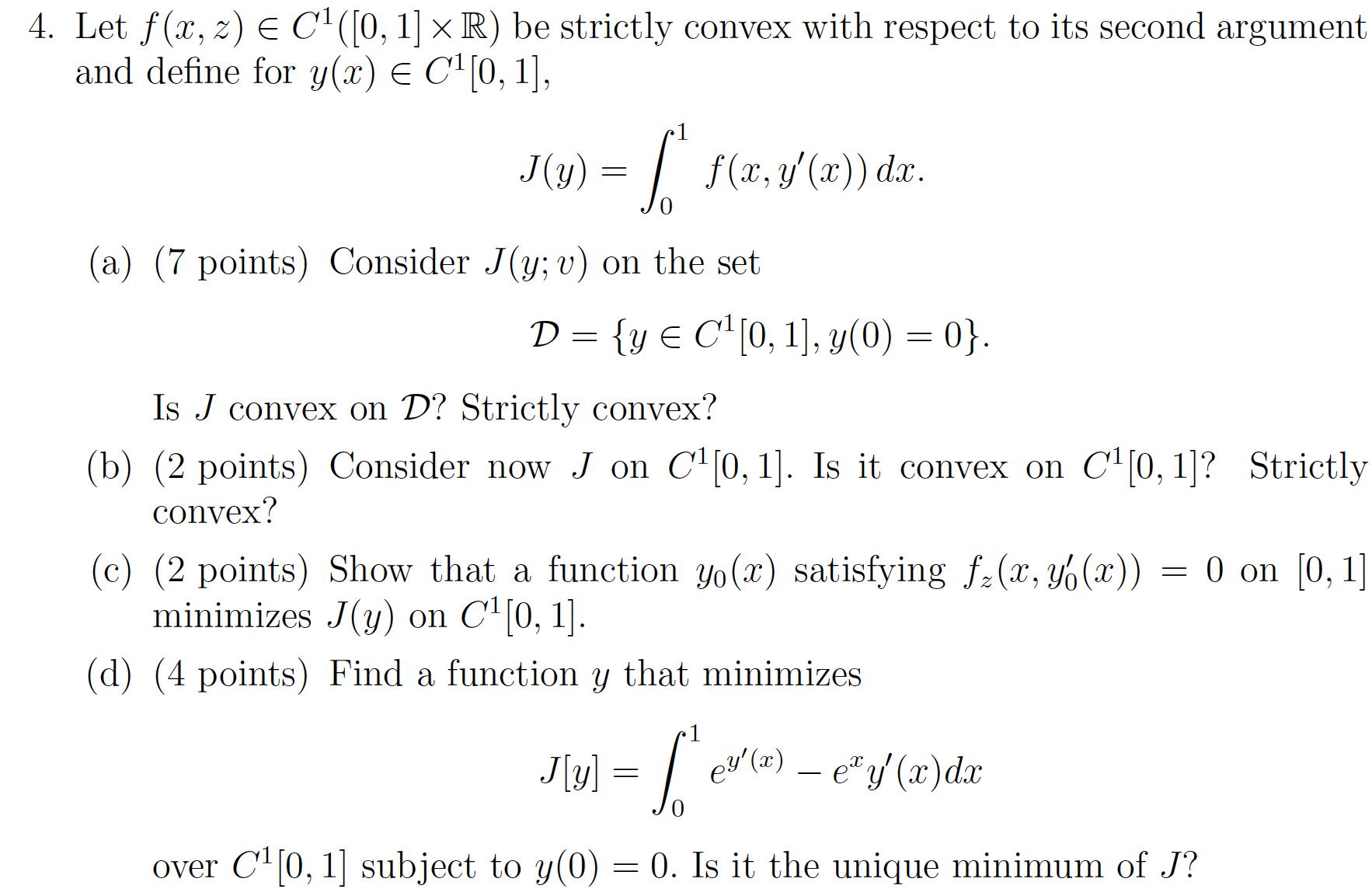Answered step by step
Verified Expert Solution
Question
1 Approved Answer
4. Let f(x, z) = C ([0, 1] R) be strictly convex with respect to its second argument and define for y(x) = C[0,1],

4. Let f(x, z) = C ([0, 1] R) be strictly convex with respect to its second argument and define for y(x) = C[0,1], J (y) = [* f(x, y'(x)) dx. (a) (7 points) Consider J(y; v) on the set D = {y C [0, 1], y(0) = 0}. Is J convex on D? Strictly convex? (b) (2 points) Consider now J on C1 [0, 1]. Is it convex on C1 [0, 1]? Strictly convex? (c) (2 points) Show that a function yo(x) satisfying f(x, y(x)) = 0 on [0,1] minimizes J(y) on C1 [0, 1]. (d) (4 points) Find a function y that minimizes 1 J[y] = [ " ey'(x) exy' (x)dx C over C1 [0, 1] subject to y(0) = 0. Is it the unique minimum of J?
Step by Step Solution
★★★★★
3.32 Rating (149 Votes )
There are 3 Steps involved in it
Step: 1

Get Instant Access to Expert-Tailored Solutions
See step-by-step solutions with expert insights and AI powered tools for academic success
Step: 2

Step: 3

Ace Your Homework with AI
Get the answers you need in no time with our AI-driven, step-by-step assistance
Get Started


